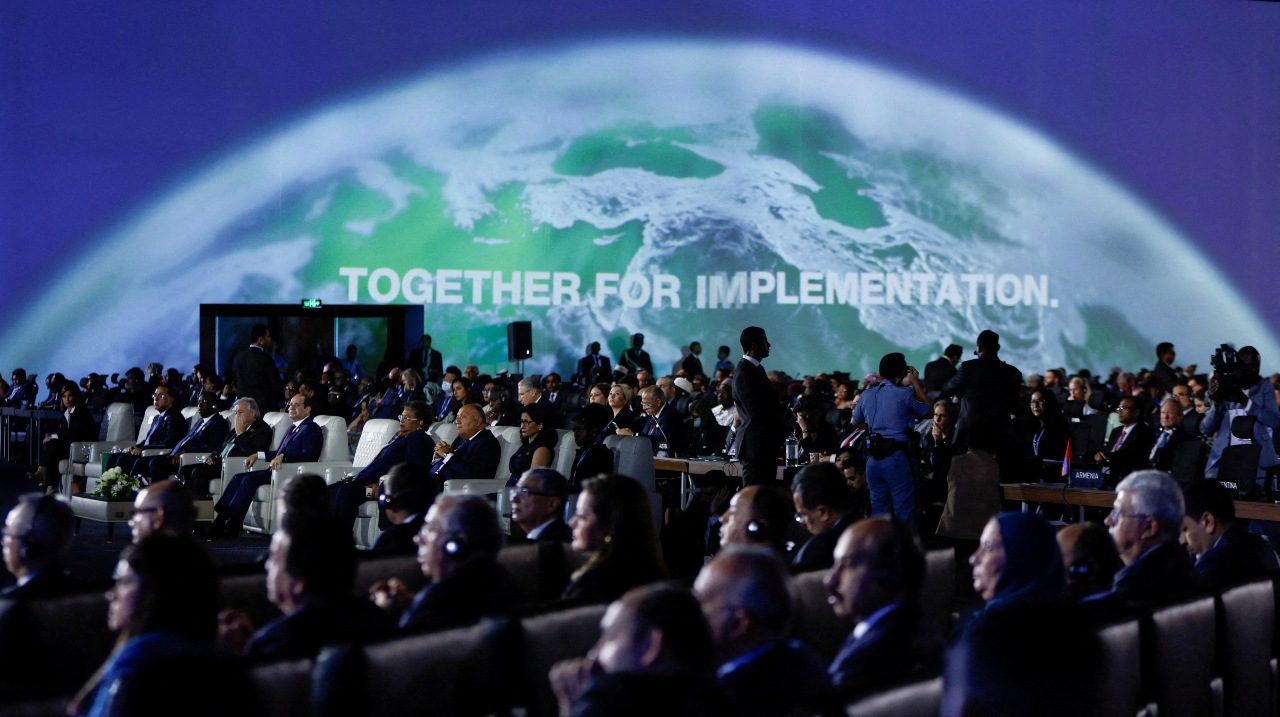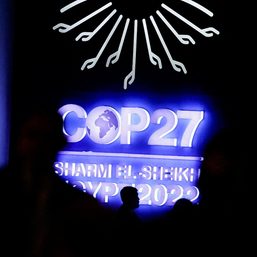SUMMARY
This is AI generated summarization, which may have errors. For context, always refer to the full article.

Hello, I’m Jee Geronimo, editor of Rappler’s environment desk. As I write this, I am in the thick of our two-week-long remote coverage of the 2022 United Nations Climate Change Conference or COP27. Remote because, unlike our coverage for COP21 and COP26, we do not have a reporter on the ground in Egypt this year. But no matter – our small newsroom will do its best to capture the most important discussions happening in Sharm El Sheikh.
I will be the first to tell you it’s not easy listening to hours and hours of monotonous climate-speak. Have I been drinking excessive amounts of coffee in the last four days? Yes. Have I left my house at all in that same period? No.
But our team of less than 10 people are putting in the hours despite the time difference (we’re 6 hours ahead of Egypt) because as journalists in one of the most vulnerable countries in the world, we know how damaging climate change is to lives and livelihood. Turning a blind eye to this reality is not an option.
If you follow me on Twitter, you may have been inundated with my tweets from the last four days as I covered the speeches of various states and governments, especially the ones most vulnerable to climate change. You can sense the urgency, nay, the desperation in some of the leaders’ remarks.
For instance, Pakistan Prime Minister Shehbaz Sharif, whose country has been badly hit by deadly floods these past couple of months, rebuked the Global North and said it is their “duty and responsibility…to understand our difficulties and our plight.” He called for loss and damage to be part of the core agenda of COP27.
The good news – if you can even call it that – is that the controversial issue of loss and damage is indeed part of this year’s agenda for the first time since the climate talks began over two decades ago. No matter how difficult the jargon can be, we are following the discussions on climate finance, which remains a contentious issue at COP27. Debates about it range from defining “climate finance” to nations “thinking differently” about how to mobilize more money, as US climate envoy John Kerry put it.
Of course, we’re also following what the Philippine delegation, led by Environment Secretary Toni Yulo-Loyzaga, as well as Filipino climate advocates are doing at COP27. For this coverage, we made sure to touch base with our networks to get a sense of what’s happening in Egypt even as we cover this annual event from home. But all eyes are on the government and whether or not the Marcos administration will walk all the climate talk we’ve heard these past couple of months.
COP27 hopes to be the “implementation COP,” but we’ll see in the remaining days whether the negotiations will really move toward climate action or if it will end up being, in the words of Greta Thunberg, another “blah blah blah.” – Rappler.com
Add a comment
How does this make you feel?





![[PODCAST] The Green Report: Post-COP27 – Where do we go from here?](https://www.rappler.com/tachyon/2022/12/gr-ep10.jpg?resize=257%2C257&crop=421px%2C0px%2C1080px%2C1080px)


![[OPINION] How COP27 impacts the Philippines](https://www.rappler.com/tachyon/2022/11/climate-action-COP27-philippines-November-23-2022.jpg?resize=257%2C257&crop=214px%2C0px%2C900px%2C900px)
![[OPINION] Reflections from the hope spot: The indifference of COP27](https://www.rappler.com/tachyon/2022/11/ispeak-cop27.jpg?resize=257%2C257&crop=190px%2C0px%2C900px%2C900px)
There are no comments yet. Add your comment to start the conversation.